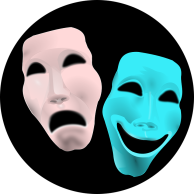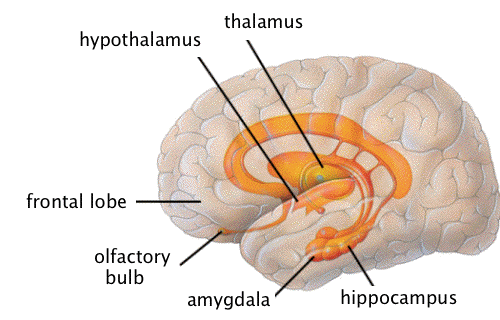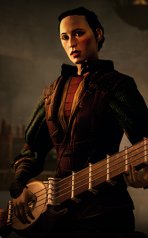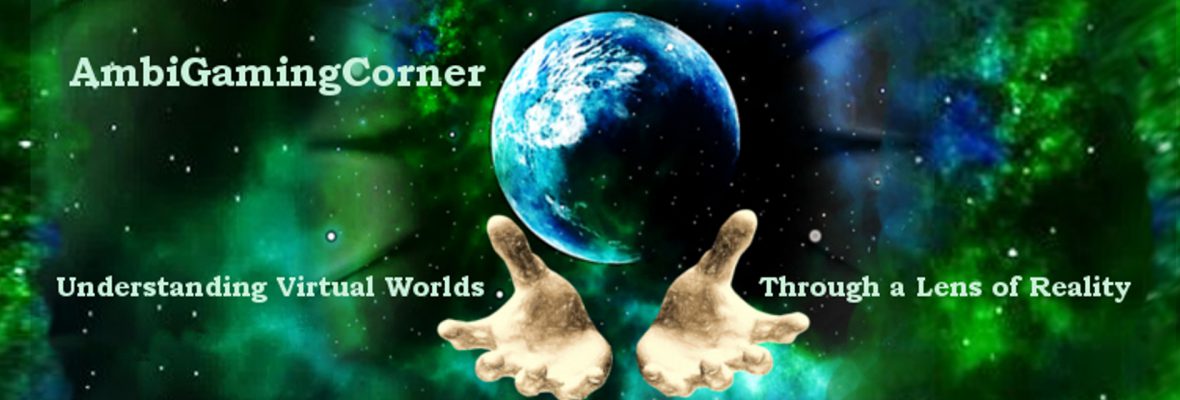Oh boy! I’m going to talk about music in video games (again)!!
If you haven’t done so already, definitely check out these six times when music secretly manipulated your feelings, and these fantastic soundtracks to get lost in from our Video Game Challenge because today we’re talking about how music can manipulate your feelings and immerse you in video game worlds with less conscious effort than any amount of dialogue ever could.
Music and Structure
Roy Prendergast, a composer and music editor who has three Emmy Awards and over 75 music credits to his name, wrote a book about music in film (conveniently called Film Music). Anyway, he talked about five main ways that music can manipulate a viewer’s (or in this case, a player’s) emotions.
- Music creates a more convincing atmosphere of time and place. We make associations for different sounds, which can be used as an emotional or symbolic short-hand when used appropriately. For instance, hearing a bagpipe will instantly call up images of Scotland, muted brass is usually indicative of something sinister, and accordions can either bring up images of lederhosen or of an old Italian cafe.
- It can underline psychological information can be made obvious to the viewer/player, through the careful manipulation of the notes, instruments, tempo, and other musical elements present. That is, a character’s inner thoughts about a situation can be illustrated without uttering a word.
- Music can also serve as a kind of neutral background filler, which can also be manipulated, as I mentioned in my Metal Gear example in the first article linked above
- It builds a sense of continuity through themes, and through the reprise of those themes at key times during an experience, which we’ll talk about a bit below
- And, perhaps most familiar to all of us, music outlines the emotional structure of a scene (as composer Aaron Copland says, it underpins the “theatrical build-up of a scene, and round[s] it off with a sense of finality”)

Music and Immersion
Wow, Athena. So what does that mean for games?
As we all know, music can evoke powerful emotions in us. Without getting incredibly technical, music can active the limbic system in the brain, which is involved in our experience of emotions and our memory (among other functions). This is the reason we may experience “chills” when listening to a piece of music – the music activates the limbic system just right and we experience that wonderfully pleasurable full-body sensation that only the strongest of positive feelings can evoke.

The limbic system is also involved in the creation and recollection of memories. Since music also activates the “emotion” part of the brain, though, the memories made by music tend to have an emotional component to them (although not all the time, if the piece of music doesn’t make you “feel” anything).
Music can also bring up memories of events, which can either trigger an emotional response or trigger another memory (this is something called associative memory). When taken together, these memories and emotions can work together to create a coherent, cohesive, and powerful whole.
Please note that this is a simplified explanation of what goes on in your brain… My personal enthusiasm aside, I know you all came here to read about video games!

Additionally, music can be used as a sort of “shorthand” by which audiences draw conclusions about their experience (or, in a video game, the environment, time period, and other thematic details). As I mentioned in my article on how music manipulates (linked again here), Mass Effect 2 and Mass Effect 3 do this very effectively. When Shepard meets his/her original squad mates, the theme from Mass Effect begins playing. Not only is this a way of clearly reminding us this person is a comrade from the original game – tapping into our memories – but it also taps into our feelings, giving us pleasant nostalgic feelings of the first game.
Courtesy of FluffyNinjaLlama
For another example of a “small” moment (spoilers for Dragon Age: Inquisition), if Hawke dies, the Dragon Age II theme plays when you talk to Varric and he reminisces about his friend.
Of course, games within the Zelda series also use music as a way to connect games, too, with themes recurring from game to game as each subsequent game borrows and builds on the themes that have come before, either using melodies that are reminiscent of earlier ones or employing instrumentation that holds a certain “Zelda” feeling. These elements help convey a connection between the games, but also emphasize the unique flavors that each title brings to the series. Check out the overworld themes across the ages:
Courtesy of IronicPhantom
Do you hear the thematic and/or instrumental similarities between them, even as they each offer their own variations of the “Zelda” feel?
Bait and Switch: A Music Analysis
These are all techniques that are employed frequently in movies and in video games. When done correctly, you don’t consciously notice it. In fact, it’s better if you don’t consciously notice it, because then your emotional experience is free of the constraints of conscious critique or suppression, resulting in a more profound emotional experience.
As we’ve seen in the Zelda themes and the unexpected recurrence of a theme from a previous game, it’s the little details that can highlight the thematic qualities of the game and add a little extra emotional punch.

Oh, no… She looks like a character from…
All joking aside, Dragon Age: Inquisition does something very unique with its unexpectedly delightful bard songs. Not only is the inclusion of a bard and minstrel music thematically appropriate and reminiscent of the pseudo-Middle Ages in which the Dragon Ages universe exists, the game also uses the bard’s music to underline important aspects of in-game events, reinforcing that your decisions matter in the game world. People are literally singing about what you do, like minstrels did in “actual” history!
As I mentioned in my other article, if you listen to the bard songs in order, you are able to get a sense of the storyline of the game, even if you haven’t played it, because the bard is “keeping up” with the events of the game in the same way real-life minstrels might sing about the great goings-on in the world.
But let’s take a brief step back.
Specialization Unlocked: Bardic Arts
Even though most will tell you that the Dragon Age series is based off of the Middle Ages, it actually takes more of its culture and customs (and music) from the Renaissance, although it does hold onto some of the characteristics of music from the Middle Ages. For instance, in Orlais, the palace music bears a strong auditory resemblance to music from the Renaissance and early Baroque periods, from its instrument choice (bowed strings with clear and distinct harmonies) to the types of harmonies present.
The use of the lute-type instrument in the tavern at Haven and Skyhold hearkens to the Renaissance period, as well. The simple harmonies and tonalities (how the notes are used) is very reminiscent of court music during the Middle Ages.
Consider these Middle Ages songs (start around 1:20 for music with words, which our bardic songs would fall under):
Courtesy of DeutscheKinecht
And then compare to our Inquisition’s bard:
Courtesy of Hikaru Kuma
Enter Thedas (and Kindly Ignore the Fangirl in the Doorway)
There are three songs that I offer for your consideration, two of which directly tie to previous games and one that alludes to another game in a poignant way.
I talked about “The Dawn Will Come” in the linked post above, particularly how the song not only sounds like a religious hymn, but also poignantly mentions a shepherd that is lost, far from his home, and that the faithful should look to the stars, for the dawn will come.
Courtesy of DragonFire Studios
A nod to Mass Effect, anyone?
…And perhaps a little hint that another adventure in the stars is coming?
Interestingly, the bard from Inquisition also sings a song about the imposing Inquisitorial spymaster, Leliana.
Courtesy of Hikaru Kuma
The beginning of this song is a match for the introduction to the Leliana’s Song DLC from Dragon Age: Origins. Additionally, the vocal melody is the same, although the words from the DLC and Inquisition are vastly different.
Courtesy of Mouzekiller83
However, both songs are about Leliana, the DLC song being one of endurance for a woman broken, and the bard song being to a plea for help from the now-imposing woman.
And of course, an English version of “I Am the One” is also included in Inquisition. “I Am the One” is the song that plays during the credits of Dragon Age: Origins, and pops up in Inquisition after the Inquisitor – hm – fights a dragon.
Courtesy of Hikaru Kuma
There are many theories as to who this song “refers” to, but the fact that it is translated from Elvish to English and otherwise kept the same from the first game to this one is notable.
Courtesy of allaboutVGmusic
Conclusion
At the risk of saying something cliche about the power of music, the above examples illustrate that the purposeful use of music can be used to elicit emotions to heighten the power of a scene, or can create cohesive wholes across separate games by tapping into our associative memories. Through the careful manipulation of music elements, a composer can convey themes, emotions, and psychological states to a viewer/player without the use of words or additional scenery, appealing directly (and subconsciously) to the memory and emotion centers in our brains. And that’s a good thing, because these experiences not only enhance our gaming experiences, but can enrich our lives in potent and meaningful ways.
So tell me, did you learn something today, or did I just bore you to tears? Have you ever experienced chills when listening to a piece of music? What soundtracks or in-game songs do you think really capture the “feeling” or the “message” of the video game? There are a ton that I didn’t list here, so let me know in the comments!
Thanks for stopping by, and I’ll see you soon!
~ Athena
What’s next? You can like and subscribe if you like what you’ve seen!
You can also:
– Support us on Patreon, become a revered Aegis of AmbiGaming, and access extra content!
– Say hello on Facebook, Twitter, and even Google+!
– Check out our Let’s Plays if you’re really adventurous!


Uh-mazing article! Pretty much everything I listen to have been picked up from a game at some point (Tony Hawk, yeah, lookin at you).
LikeLiked by 1 person
Well, thank you kindly! There’s definitely some great music out there in the soundtrack/score world!
Tony Hawk, yeah… I forget which one I had, maybe 2??? But I could sing along with all the songs at one point! haha
LikeLiked by 1 person
I remember the pain of recording the songs on to the minidisc (super high everlasting technology). Didn’t have internet..
LikeLiked by 1 person
Minidiscs?! Wow I haven’t come across one of them in a long time… 🙂 You were more high-tech than me, though. I’d pop in the game with the music I wanted to listen to, turn the volume up, and then go about my day. Not really portable, but there you go… haha
LikeLiked by 1 person
Portable? Yes. Waste of money? Also yes 🙂
LikeLiked by 1 person
Bioware usually does a great job putting the pieces together: story, gameplay and ambient (music, effects). Dragone Age games are a great example of that (but you already know this!) – just listening to the theme from Origins gives me the chills as well. It’s a great piece and I love it!
That being said: currently I can’t hand-pick one or even a few songs that capture the feeling of a game, since I’ve been very distant from many games I’ve played. A few theme songs come to mind, even if they don’t exactly capture the whole feeling of the game, they most certainly give you a good idea of what’s to come and what to expect;
Dragon Age: Origins; The Elder Scrolls V – Skyrim; The Last Story; Xenoblade Chronicles.
They’re all very different but they’re all very dear to me.
LikeLiked by 1 person
Yes, I’m a bit of a Dragon Age fan… 🙂 Such a great game, such a great soundtrack… haha
Those are some great picks! I do like the heavy Nordic themes in Skyrim, too. I’m not too well versed in Xenoblade Chronicles, but I just checked out some of the music and it’s very pretty! And you’re right, most composers do a good job with matching the emotional/action content of a scene with music that captures the moment well.
LikeLike
Really enjoyed this article. As you say:
“As we’ve seen in the Zelda themes and the unexpected recurrence of a theme from a previous game, it’s the little details that can highlight the thematic qualities of the game and add a little extra emotional punch”
I’ve been thinking about this recently as well! The Zelda music – especially the overworld tunes you linked to – are all “variations on a theme”. Each game seems to reference all the others artistically, musically, so you have that emotional pull each time.
It’s interesting that you linked to examples of Medieval music – I don’t know the Dragon’s Age series very well, but you can hear the influence of this music in Zelda as well I think.
LikeLiked by 1 person
Glad you liked the article!
That’s a great observation you make about Zelda. I think there is definitely a connection between the Zelda music and midieval music. While a “middle ages” theme has never (to my mind) been at the forefront of a Zelda game, it obviously takes some inspiration from that time period, and the tonalities used do reference how music was played during that period. Good ear!!
LikeLiked by 1 person
I just played Wind Waker again recently, and the intro sequence was particularly Medieval in that way!
LikeLiked by 1 person
This is why I play Fallout 4 with the radio off, the games actual score is superb. Great Post!!!
LikeLiked by 4 people
Thanks! Sadly Fallout 4 is still on my to-play list, but I checked out some of the score and it sounds really good! (It’s also by the same person who composed Dragon Age: Origins, fun fact…)
LikeLiked by 1 person
I wasn’t smart enough for this post! One of the most fascinating and mysterious things about music is the generally shared associations we make with sounds. Why does creepy sound creep us out? What is creepy? Now I won’t be able to sleep. This is one of the most unique gaming posts I’ve read!
LikeLiked by 1 person
Thanks! And everyone is smart enough to appreciate some well-crafted music 🙂
Those are great questions!! The shortest answer regarding “creepy music” is that the reactions are biologically based. The long answer… I think I sense a future post!! 😀
LikeLiked by 1 person
Do it! I started a while back trying to talk about different themes in gaming music and why they evoke different responses, focusing on what the songs do and use to conjure such feelings. But I’m just a guy who taught himself piano and I’ve no background in music education.
LikeLiked by 1 person
You should pick that article back up, too 🙂 And you’ve officially sold me on this new topic! haha
LikeLiked by 1 person
Well I’ve played around with the thought of it. Last one I did was Top 20 spooky tracks back in October. Ice/Winter tracks would’ve been appropriate to do next. They’re just so time consuming and again, I feel like if I had more time for research and a better education, I could feel more confident about it. Are you a musician? Just curious.
LikeLiked by 1 person
I actually am a musician! 🙂 I’m currently finishing up my master’s degree, and my thesis relates to emotions and emotion processing in music, so this is a bit of a pet interest of mine 🙂
So I’m always up for talking about music!
LikeLiked by 1 person
I knew it! When I was reading your article, you sounded a lot like a friend of mine who considers herself a music fanatic and she’s got a background in music education too.
LikeLiked by 1 person
You got me! And your friend sounds pretty cool 😉
LikeLiked by 1 person
Awesome article! I do believe that music is a huge part of games and is typically what I remember years down the line. A game may be excellent, and I will love it for that, but it’s the music that lives with me and continues to resonate in my head and my iPod. I love video game music so much! Great tracks!
LikeLiked by 1 person
Thanks! Music really is so important in our lives and our society, our media, and definitely our games! I definitely have some video game music on my iPod, as well; it’s great! 🙂
LikeLiked by 1 person
Great read! I’m fascinated by music and how it can enhance a scene. For me, music has played a massive part in making some of my favourite gaming moments more memorable.
LikeLiked by 1 person
Thank you! Yes, music definitely adds a little magic to our experiences! 🙂 Glad to hear music plays a role in enhancing your gaming!
LikeLiked by 1 person
I have a playlist of music specifically for what I used to call “that feeling,” the one where you get the chills. Many of them are from video games. I have to go back to Final Fantasy VI again for this as that was the first game to introduce me to the concept of the leitmotif, since all 14 characters had their own, and they were absolutely evocative of the characters’ natures. Nobuo Uematsu is a genius with not only character music, but setting music as well.
I wish I could recall where I found the article about how VG music is specifically designed to help you think/problem solve. I don’t know how true that remains since many games now take a more orchestrated and score like approach, but I can see it holding true for the earlier days of gaming.
Not remotely bored to tears. I’m a music nerd, too 🙂
LikeLiked by 1 person
That’s interesting. I know music can help some people concentrate more, and soundtracks in general are composed specifically to be “noticed” but not to be “intrusive,” or to pull your attention away from whatever important thing is happening. And, of course, original scores are composed specifically to tap into our emotions in order enhance our experience, so it’s no wonder they have their own “emotional” playlist! 🙂
Glad you liked the article and I didn’t bore you 😉
LikeLiked by 1 person
I’ve found with editing or writing I prefer wordless soundtracks or scores, because they don’t distract from the words I’m trying to get out or edit.
LikeLiked by 1 person
I’m the same way. If a song has lyrics, I can’t listen to it when I’m writing because I’ll either start listening to the lyrics or I’ll start singing along!
LikeLiked by 1 person
If I turn the music down low, it’s a bit better, but I have discovered that most of my “editing songs” are instrumental.
LikeLiked by 1 person
You know, I had always written Bioware’s music off as being rather weak, aside from their big setpiece songs. Perhaps that’s why I missed out on most of these moments. Music does tie in very closely with memory, so that’s a rather clever use of this tool that I hadn’t recognized before. Thanks for pointing these out!
LikeLiked by 1 person
They definitely have some showstoppers, don’t they? I can see how you think the rest of the scores are sort of, well, background music. It’s definitely not music that’s meant to grab your attention during the game.
Glad you liked the article! I always appreciate when developers pay attention to small details like that and use them to subtly drive their (story or emotional) point home.
LikeLike
I like learning things so this was a great read! As soon as I read the word “Zelda” that iconic theme music instantly started playing in my head. That says a lot right there. And yes, I’m aware I still need to play the Mass Effect games and the two DA games I’m missing out on. Thanks for continuously reminding me. 🙂
I also find music inspirational when I’m writing stories. Now I know it’s because music that is special to me triggers “the feels” part of my brain.
LikeLiked by 1 person
That’s an effective theme, then! 🙂 And it seems like a lot of folks listen to music when they write. I actually found “epic music” on YouTube (seriously, that was in the titles) that helps me work, and is also reminiscent of some soundtracks I’ve heard -they’ve gotten me through a lot of late nights studying and writing!!
And I’m glad you are aware. They’re amazing. Not that I’m biased. At all……. 😀
LikeLiked by 1 person
Awesome article! Like many people have already said, music plays such a huge part in evoking certain emotions and creating strong lasting memories in games. For example, every time I hear someone talk about Bravely Default, my mind automatically thinks about the epic high energy music from the last few boss battles and through that all the memories come rushing back of when I played through the game and everything else that was going on in my life at that point in time. One memory links to another and music is an effective way of bringing it all back in your mind.
LikeLiked by 1 person
I’m not sure how this comment never showed up in my notifications! But I’m glad you commented! 🙂
Isn’t it interesting how quickly music can bring up a slew of memories (and how a memory can bring up a piece of music)? It’s like setting off a line of dominoes. Your experience with Bravely Default is a great example of this, especially knowing how close emotions and memories can be linked!
Sorry for the delay again 😦 Hope to see you back again soon!
LikeLiked by 1 person
Its all good. I havent been active on wordpress for a while as there have been a lot of things going on in life. Yes its exactly like setting off a line of dominoes!
LikeLiked by 1 person
I was always attracted to the music in Dragon Age Origins. You do have good choice in music. And no Athena, you didn’t bore me. 🙂 I really like this sort of post. It is very entertaining and educational.
I typically listen to a lot of video game soundtracks, but I have to say NIER is the game that captured me the most with its music.
LikeLiked by 1 person
Thanks for your comment! I’m glad you enjoyed it and learned something 🙂
Dragon Age:Origins is great, isn’t it? I haven’t played NIER but I’ve heard some of the music. That’s a great soundtrack, as well. I can only imagine it within the context of the game!
LikeLiked by 1 person